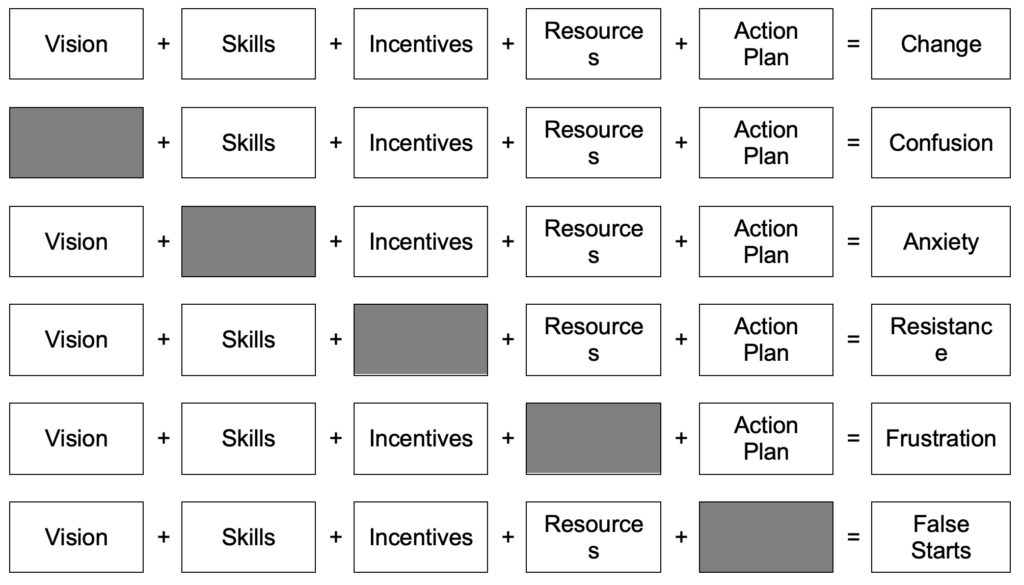In the poem “Invictus,” William Ernest Henley discusses the “unconquerable” spirit in the face of death while preserving one’s sense of dignity in the course of that struggle:
Out of the night that covers me,
Black as the pit from pole to pole,
I thank whatever gods may be
For my unconquerable soul.
In the fell clutch of circumstance
I have not winced nor cried aloud.
Under the bludgeonings of chance
My head is bloody, but unbowed.
Beyond this place of wrath and tears
Looms but the Horror of the shade,
And yet the menace of the years
Finds and shall find me unafraid.
It matters not how strait the gate,
How charged with punishments the scroll,
I am the master of my fate,
I am the captain of my soul.
Life can encompass any number of challenges and problems—the gravest of which is death itself. Henley’s poem, which has been used as an inspiration for everything from the branding of a cologne to a critically acclaimed film directed by Clint Eastwood, is a metaphor for confronting and traversing adversity. However treacherous the predicament one finds themselves in, Henley describes the unconquerable as those with the fortitude to steer their vessel through the storm. To be undefeated (nota bene) does not mean to be unscathed: although the poem’s subject is “unbowed,” his “head is bloody.” Glory is reserved (as it ought to be) for those who do not take refuge in the shadow of the swell, but rather take purposeful action to maneuver through that low-pressure system.
Truth be told, there is a variety of death in all facets of life—personal and professional—because it is a byproduct of change. Even during those events when one “survives,” a loss accompanies any transition as the former state of being is shed. But to move forward requires change, sometimes incremental that slowly evolves over time and, in other instances, a seismic shift in our way of doing things is abruptly thrust upon us. In fact, irrespective if one seeks that progress, the only constant is change. However necessary and even natural change is to growth, periods of transition can oftentimes be distressing and disorienting as the past makes way for the future. Understandably, the experience can be unsettling because identity is frequently attached to that person, place, or thing. Change then brings with it the loss of the way things were that includes how we identify ourselves.
Henley’s poem strikes me as a meditation on the process which unfolds between the here (who we are and/or status quo of the organization) and there (who we aspire to be and/or the vision of the organization). The success of a leader is largely defined by how well she manages the “space” between these two planes, as she works and inspires others to achievements they previously did not think possible. Charting the course can certainly be frustrating and, at times, incredibly daunting, as things shift, and different realities emerge. But the truly great among us are adept at leading themselves and others through these deep and dark waters notwithstanding if the travails are real or perceived. How can a court administrator learn to be one of these exceptional leaders—invictus in her leadership role while advancing the work of the courts over the course of a career?
***
I slid my hand through the beaded door curtain of the side entrance to Toni’s home and gently knocked on the window panel of the wooden door that was fully opened. As I stepped through the doorway that led into her kitchen, I announced my presence, “permesso”—literally means to allow or permit but is also used as a word of politeness when entering an Italian household. Toni’s husband, Jack, was sitting at the kitchen table reading La Gazzetta dello Sport, an Italian daily newspaper covering various sports and printed on its distinct pink paper. He glanced over at me looking over his reading glasses and welcomed me inside, asking me to grab a chair and join him at the table.
“Toni is down in the food pantry getting a few things I think, but I know she was expecting you.”
She must have heard me speaking with Jack when she said, “I’ll be up in a minute.”
“She saved you some ceviche. Would you like some?” he asked.
“No thank you—I ate just a short while ago.”
“Okay—but you don’t know what you’re missing. It’s fantastic—like you’ve never had before.”
“Maybe later.”
“Toni tells me you’re having some trouble. Anyone who doesn’t have an appetite for ceviche must be crestfallen,” he stated jokingly.
“A little problem, but nothing out of the ordinary.”
He could tell that I was making light of what I genuinely felt and asked, “Do you have a roof over your head?”
“Yes,” I replied.
“How about food? Do you have enough to eat?”
“Yes, thankfully, I don’t need to skip any meals to make ends meet.”
“And your health? How did your most recent physical go?”
“All good there too, Jack.”
“Okay, then. I’d say that you have no problem at all.”
“Ha—understood Jack. I like your perspective of things.”
Just then Toni came into the kitchen holding a mason jar of her homemade tomato sauce. She placed the jar onto the counter, went into the refrigerator, and scooped out a small bowl of ceviche for me.
As she placed it down onto the table while handing me a fork and napkin, Jack said, “I asked him if he wanted some and he said no.”
“You don’t ask, you just serve it,” Toni retorted. She then poured me a cup of her sweetened iced tea made with granulated brown sugar, lemon wedges, and fresh mint leaves. She would make the tea throughout the year using the lemons and mint she tended to in her sunroom. “The sweetness of the tea pairs excellent with this marinade—try it.”
“Anyway, here’s how I see it and you should too,” Jack continued. “Anything that can be resolved through time, effort, or money isn’t really a problem.”
“True, but lest you forget, ‘tutti piangono con i propri occhi,’” Toni said.
“I missed that, what’s that mean?” I asked.
“It’s an expression. ‘Everyone cries with their own eyes,’” Jack explained.
“Now that’s perspective Jack!” I exclaimed.
“Yeah perspective. Ask her where she got that maxim from,” gesturing his thumb and pointing it back and forth toward his chest.
“Actually, we borrowed it from your father. And if it makes sense, why not apply it when appropriate? Am I right?” Toni jokingly asked.
“Makes sense to me—I think I’ll borrow it too.”
“My wisdom is always available for loan to you with zero interest,” Jack said pointing to his head. He placed his two hands on top of the table as though he was about to make a grand pronouncement, “Well, spring is upon us and it’s too nice a day for me to sit here. Plus, I’ve had plenty of ceviche. I’m going for a walk.” He hunched over as he got up and said, “If you’re gone by the time I get back, keep your chin up.”
“I will and thanks for the advice.”
“Anytime,” he said patting me on the back. He was just about to slip through the beaded door curtain, when he stopped, turned and said, “I’ll leave you with an additional piece of my sage advice. Toni can correct me on the more colorful way it’s been said, but don’t let those people giving you trouble grind you down.”
“Hahaha. Get out of here!” Toni exclaimed while chuckling.
“The acidity has cooked through marvelously, Toni. What’s your secret to this?” I asked as I picked up a forkful of the diced cubes of fish.
“I’ll share the recipe with you—it’s actually quite simple—but my secret ingredient is adding a minced Thai bird chili.”
“It’s fantastic and the sweetened iced tea hits the mark as well.”
“Thank you. So, what Jack shared with you rings true, but I know that you’re still feeling the weight of the crown.”
“I am. It’s been incredibly discouraging with the kind of pushback that I’m getting even from some of my senior personnel as I institute the changes I discussed with you a few months back. And it seems like it’s getting harder instead of easier. In the last couple of weeks, we started archiving our mainframe legacy system, and implementing the procedures for the new automation processes has been a nightmare. I don’t want to get into the minutia of it all but suffice to say, the reaction I’m getting from some these folks is plain juvenile.”
“Lots of passive aggressive behavior I bet.”
“Yes!”
“Is the chief judge on board with the changes you’re making?”
“One hundred percent. Much of what we agreed to do at the start of the year is what we’re doing. And she’s met with all the affected parties before, during, and after our changes to also try and get everyone on board.”
“You understand why this is happening?” Toni asked.
“Umm—because they hate me,” I stated bluntly.
Toni didn’t have a good singing voice, but she sang the Bob Dylan chorus line as best she could that was central to her point, “Because ‘the times they are a-changin.’ So, it’s not that they hate you (maybe they do), but they hate what you represent. And it’s not the change per se, but the transition that has gotten them (and now you) flustered. Once you arrive and that change is embedded, you’ll be fine and in a better position. It’s the getting there that’s the hard part. And of course, everything new eventually becomes old and the process starts all over again. It’s a cycle.”
“Intellectually I know you’re right, but part of me wants to say, ‘if you can’t beat them, join them.’”
“Make certain that you stay smart then. Remember that the most significant opposition comes with the ‘traction’ of change—when the method of ‘the way we used to do it’ actually starts to transition. The reality begins to sink in that the change is no longer being discussed as only an idea or concept. That’s where you are in this journey. Remain steady, be patient, persevere, and maintain that good partnership with your chief judge. Whenever the opportunity avails itself, continue your efforts to persuade as many as you can to get on the train that’s leaving the station.”
“And if they don’t? They decide to stay on the platform?” I asked.
“Well then, you’ll need to go through the protocols and show them that the ‘old road is rapidly agin’/Please get out of the new one/If you can’t lend your hand.’”
***
In his book, Things Fall Apart, Chinua Achebe writes, “Eneke the bird says that since men have learned to shoot without missing, he has learned to fly without perching on a twig.” Like Eneke, a manager who is also an extraordinary leader is transformative and always on the move. To get to where we need to go—what we hope to become and where we envision taking our court organization—requires change. Despite the benefits that it can ultimately engender, it is oftentimes met with such resistance that the vast majority will retreat into the comfort of the status quo. There are those exceptional few, however, who will navigate the process knowing that it is the transition toward change, as Toni posited, that hectors most others to capitulate to that powerful force. But what separates the distinguished from the pedestrian? Toni would say perseverance. Character is strengthened by virtue of going through the process irrespective if the outcome results in one’s favor. So, there is no “losing,” as Nelson Mandela stated, one either “wins or learns.” The benefit of the lessons learned and lack of regret that becomes a part of life’s aggregate experience eclipses any temporary setback. The patience to see it through, in spite of how uncomfortable it can be, is key. Once that chasm is bridged, the “change” eventually becomes old practice until there is a need or desire to change again. Greatness requires perpetual adaptation that integrates knowledge and experience that should be accumulated on a regular basis.
If a manager seeks to be genuinely successful while working in the courts, she must consistently assess practices and, when appropriate, institute change so that the system keeps pace with ever-changing expectations. To be a manager means to have responsibility over others; so, how can she position herself so that those within her purview are more likely to follow her lead? The model illustrated below developed by Dr. Mary Lippitt, founder and president of Enterprise Management, highlights the critical components in managing complex change. While it has been applied to a variety of organizations other than the judiciary, it can be made to correspond just as easily to the context of the courts. Each box represents a key element because as illustrated, the absence of any one of these dynamics will confound the leader’s efforts and manifest unintended outcomes. A plan to institute change must be careful to address each of these elements as a part of its short- and long-term strategy. Complex change is realized when court leaders effectively bring together the composite of vision, skills, incentives, resources, and an action plan. To that end, the court’s leadership must be able to operationalize the following questions as they pertain to each aspect of the process:
- Vision—what is the guiding statement and is it clear and compelling to inspire action from those stakeholders that can significantly impact the process?
- Skills—are the role players sufficiently prepared and competent enough to undertake the work needed to make the desired changes in shifting the culture?
- Incentives—what are those things and performance measurements that court leadership can utilize to help keep role players incentivized in achieving the desired ends?
- Resources—what types and kinds of resources does the court realistically have and require to make the desired changes?
- Action Plan—has court leadership equipped the organization with a comprehensive and clear blueprint to navigate the process in accomplishing the desired ends in a specified period of time?
Managing Complex Change Paradigm

The purposeful pursuit to advance to the next stratum, be it personal or professional, is generally not the convenient choice; but seminal decisions seldom are. The apprehension the manager may see in herself during these transitionary periods is not unlike the thoughts and emotions experienced by a myriad of others. The difference that separates those who “arrive” from those lost at sea is the willingness to weather the storms. The anguish that is endured during these ventures—sometimes bloodied, but never permanently beaten, as Henley alluded—is a requisite part to becoming great.
And those are just some of my musings on management.
ABOUT THE AUTHOR

Giuseppe M. Fazari has been musing about management concepts and practices throughout his career as an administrator, consultant, and academic. Contact him at fazarigm@aol.com.



